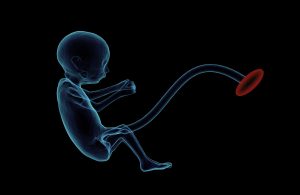Featured Products
- In-Stock Tumor Cell Lines
- Human Orbital Fibroblasts
- Human Microglia
- Human Pulmonary Alveolar Epithelial Cells
- Human Colonic Fibroblasts
- Human Type II Alveolar Epithelial Cells
- Human Valvular Interstitial Cells
- Human Thyroid Epithelial Cells
- C57BL/6 Mouse Dermal Fibroblasts
- Human Alveolar Macrophages
- Human Dermal Fibroblasts, Adult
- Human Lung Fibroblasts, Adult
- Human Retinal Muller Cells
- Human Articular Chondrocytes
- Human Retinal Pigment Epithelial Cells
- Human Pancreatic Islets of Langerhans Cells
- Human Kidney Podocyte Cells
- Human Renal Proximal Tubule Cells
Primary Cells
Explore Products



 Human villous trophoblasts (HVT) are primary cells isolated from human placental villi, typically obtained from healthy pregnancies. These cells represent the progenitor population of the placental villi and exhibit distinct morphological features, including mononuclear cytotrophoblasts that fuse to form multinucleated syncytiotrophoblasts. HVT cells are cryopreserved at earliest passage and are not recommended for long-term expansion due to their limited proliferative capacity. Functionally, HVT mediate nutrient exchange, secrete pregnancy-sustaining hormones such as human chorionic gonadotropin (hCG) and placental lactogen, and express chemokine receptors CXCR4 and CCR5. These characteristics position HVT as a critical model for studying placental development and gestational pathologies.
Human villous trophoblasts (HVT) are primary cells isolated from human placental villi, typically obtained from healthy pregnancies. These cells represent the progenitor population of the placental villi and exhibit distinct morphological features, including mononuclear cytotrophoblasts that fuse to form multinucleated syncytiotrophoblasts. HVT cells are cryopreserved at earliest passage and are not recommended for long-term expansion due to their limited proliferative capacity. Functionally, HVT mediate nutrient exchange, secrete pregnancy-sustaining hormones such as human chorionic gonadotropin (hCG) and placental lactogen, and express chemokine receptors CXCR4 and CCR5. These characteristics position HVT as a critical model for studying placental development and gestational pathologies.